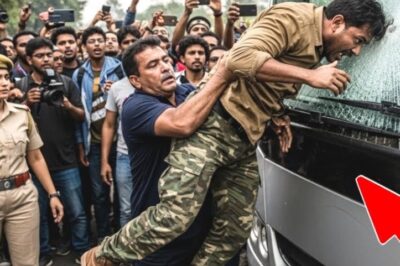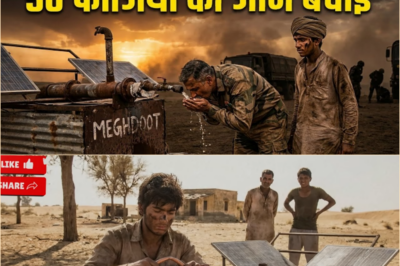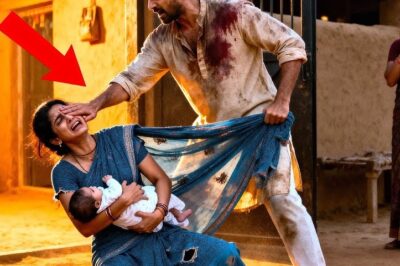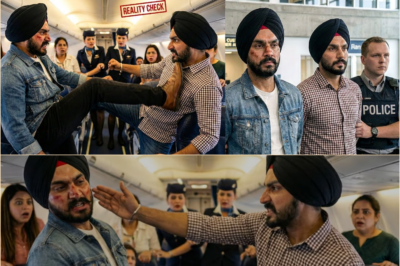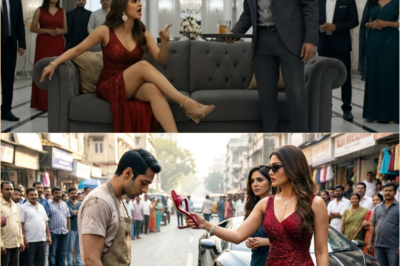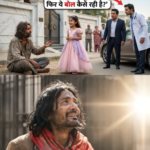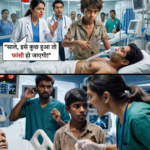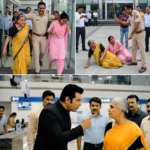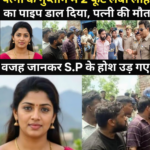Amitabh Bachchan did not talk about Pahalgam Terror Attack, fans got angry.
.
.
.
play video:
Amitabh Bachchan Faces Backlash for Silence on Pahalgam Terror Attack: Fans and Critics React
Mumbai, India – The nation is reeling from the shocking terror attack in Pahalgam, Jammu & Kashmir, which claimed the lives of 28 tourists and left many more injured. As the country mourns this tragedy, emotions are running high, and citizens are demanding solidarity and strong condemnation from every corner of society—including Bollywood. While several film stars have expressed their outrage and grief, legendary actor Amitabh Bachchan’s silence has sparked a heated debate, dividing fans and critics alike.
A Nation in Mourning and Anger
On a day that should have been filled with the joy of travel and exploration, terror struck the picturesque town of Pahalgam, leaving families shattered and the country in mourning. The attack, which targeted a group of tourists, has been universally condemned by political leaders, celebrities, and ordinary citizens. Social media platforms are flooded with messages of grief, anger, and calls for justice.
As the news broke, many Bollywood stars took to their social media accounts to express their sorrow and outrage. Hashtags like #PahalgamAttack and #StandWithKashmir began trending, with actors, directors, and musicians sharing their condolences and demanding action. In such moments, the voices of influential public figures are often seen as both comforting and unifying for a grieving nation.
Amitabh Bachchan’s Cryptic Tweet Sparks Confusion
However, one voice that was conspicuously absent from the conversation was that of Amitabh Bachchan, the iconic actor whose words often carry significant weight in the public sphere. On the night following the attack, Bachchan posted a tweet that left his followers puzzled: “T5 356”—and nothing more.
The tweet, posted at 1:20 AM, offered no context, no message, and no reference to the tragedy that had just unfolded. For a figure of Bachchan’s stature—someone who has been a part of the nation’s cultural fabric for over five decades—this silence was deafening for many.
Social Media Outrage: “Why So Silent, Sir?”
The response from social media was swift and intense. Within minutes, the tweet’s comment section was filled with questions, criticism, and, in some cases, anger.
One user wrote, “Did Jaya ji take away your phone? Why no words about Pahalgam?” Another asked, “How can you stay silent after such a massacre? Sometimes, words are needed, sir.” Others demanded, “At least say something, sir. In times like these, you should stand with Indians.”
The sentiment was echoed across platforms. Many felt that Bachchan, as a national icon, had a responsibility to speak up in moments of national crisis. “Your silence hurts more than your words ever could,” one fan lamented. Another commented, “When the country bleeds, we look to our heroes for support. Where are you, Amitabh sir?”
Fans Defend Their Idol: “Silence Speaks Volumes”
Yet, not everyone was critical. Many fans rushed to Bachchan’s defense, arguing that silence can sometimes be more powerful than words. “Silence says a lot,” one supporter wrote. “Maybe Amitabh sir is too hurt to express himself right now.” Another suggested, “Perhaps he wanted to write something but couldn’t find the words. Sometimes, the pain is too deep.”
Some pointed out that Bachchan, now 82, may have different ways of processing grief. “He’s seen many tragedies in his life. Maybe he’s mourning in his own way,” a fan argued. Others speculated that the cryptic tweet might have been the beginning of a message he was unable to finish.
The Role of Celebrities in Times of Crisis
The debate over Amitabh Bachchan’s silence raises important questions about the role of celebrities in society, especially during times of national tragedy. As public figures with millions of followers, their words can offer comfort, inspire action, and help unite a grieving nation. But do they have an obligation to speak out every time disaster strikes?
Media analyst Priya Menon believes that the expectations placed on celebrities are a reflection of their influence. “In India, film stars are more than entertainers—they’re cultural icons. People look to them for guidance, reassurance, and solidarity, especially during crises. When someone like Amitabh Bachchan chooses not to comment, it’s bound to create disappointment.”
However, others argue that celebrities are individuals first and should be allowed to grieve or respond in their own ways. “We can’t force people to react the way we want them to,” says psychologist Dr. Rakesh Sinha. “Everyone processes trauma differently. Silence doesn’t always mean indifference.”
Amitabh Bachchan’s History of Social Commentary
It’s worth noting that Amitabh Bachchan has, in the past, used his platform to comment on national issues. Whether it’s natural disasters, social causes, or moments of national pride, Bachchan’s social media accounts often reflect his engagement with current events. His absence from the conversation around the Pahalgam attack, therefore, stands out even more.
Some speculate that Bachchan may be waiting for more information before making a statement, or that he prefers to express his support in private ways—through donations, phone calls, or personal outreach to victims’ families.
The Pressure of Public Life at 82
At 82, Amitabh Bachchan remains one of the most active and visible figures in Indian cinema. Yet, the pressures of public life can be immense, especially in an age where every word is scrutinized, and every silence is dissected.
A close family friend, speaking on condition of anonymity, said, “Amitabh ji is deeply affected by what happened in Pahalgam. He’s always been sensitive to the pain of others. I think people should give him space to process his feelings.”
The friend added, “Sometimes, the expectation to immediately react on social media can be overwhelming, especially for someone of his generation.”
A Divided Public: The Price of Fame
The controversy surrounding Bachchan’s silence highlights the double-edged sword of celebrity. On one hand, stars are revered and celebrated; on the other, they are held to impossibly high standards. Every action—or inaction—can become a subject of public debate.
For some, Bachchan’s silence is a reminder that even the most beloved figures are human, capable of feeling overwhelmed, uncertain, or simply unable to find the right words. For others, it’s a missed opportunity for leadership and solidarity.
The Broader Bollywood Response
While Bachchan’s silence has dominated headlines, it’s important to note that many other Bollywood celebrities have spoken out against the attack. Stars like Akshay Kumar, Priyanka Chopra, and Anupam Kher posted heartfelt messages condemning the violence and expressing support for the victims and their families.
Their posts have been widely shared, with fans praising them for using their platforms to raise awareness and call for justice. Some have even organized fundraisers and charity drives to support those affected by the attack.
Moving Forward: The Need for Unity
As the country continues to mourn the loss of innocent lives in Pahalgam, the debate over Amitabh Bachchan’s silence serves as a reminder of the power—and the limits—of celebrity influence. In times of tragedy, words can offer comfort, but actions, both public and private, matter just as much.
For many, the most important thing now is to focus on supporting the victims and their families, demanding accountability, and working towards a safer future for all. Whether through words, deeds, or silent solidarity, every gesture of support counts.
Conclusion: Silence, Words, and the Weight of Expectation
The aftermath of the Pahalgam terror attack has left the nation searching for answers, comfort, and unity. In this climate, every voice matters—including those of our most cherished celebrities. Amitabh Bachchan’s silence has sparked a passionate debate about the responsibilities of public figures, the meaning of solidarity, and the ways in which we process collective grief.
As India grapples with this tragedy, perhaps the lesson is that there is no single “right” way to mourn or to stand in solidarity. For some, words bring healing; for others, silence speaks volumes. In the end, what matters most is that we do not turn away from the suffering of others—that we continue to care, to act, and to hope for a better tomorrow.
News
Ips Inspector ny Bus Driver ko Mara Lekin Bus Driver ke Bhais Mein Aik Army Officer Nikla
Ips Inspector ny Bus Driver ko Mara Lekin Bus Driver ke Bhais Mein Aik Army Officer Nikla . . ….
रेगिस्तान में प्यासे मर रहे थे फौजी, तभी 17 साल के लड़के ने किया चमत्कार
रेगिस्तान में प्यासे मर रहे थे फौजी, तभी 17 साल के लड़के ने किया चमत्कार . . . रेगिस्तान में…
एक बेघर बच्चे ने अपनी जान पर खेलकर अरबपति को ट्रेन से बचाया… आगे क्या हुआ? 😲
एक बेघर बच्चे ने अपनी जान पर खेलकर अरबपति को ट्रेन से बचाया… आगे क्या हुआ? 😲 . . ….
तीसरी बार भी बेटी होने पर पति ने पत्नी को घर से निकाला फिर जो हुआ… Heart Touching Story
तीसरी बार भी बेटी होने पर पति ने पत्नी को घर से निकाला फिर जो हुआ… Heart Touching Story ….
What Happened on the Plane? ✈️ Punjabi Youths’ Fight Shocks Everyone 😱
What Happened on the Plane? ✈️ Punjabi Youths’ Fight Shocks Everyone 😱 . . . What Happened on the Plane?…
घमंड में डूबी पत्नी ने पति को नौकर समझकर नीचा दिखाय…..पर सच्चाई सामने आते ही सब दंग रह गए
घमंड में डूबी पत्नी ने पति को नौकर समझकर नीचा दिखाय…..पर सच्चाई सामने आते ही सब दंग रह गए ….
End of content
No more pages to load

